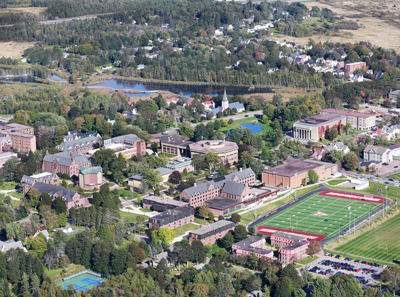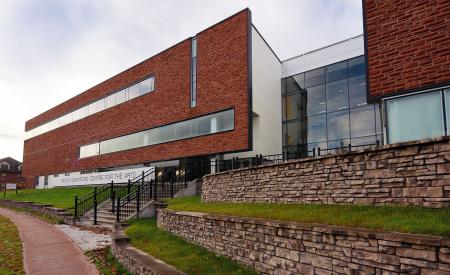Mount Allison Board of Regents approves 2019-20 budget
University to continue to invest in new programming, experiential learning, and student supports
In its annual spring meeting, Mount Allison University’s Board of Regents approved the 2019-20 budget, in the context of recent and evolving strategic initiatives.
 Mount Allison’s 2019-20 budget supports continued innovation while aligning to revenue and cost realities. For the 2019-20 fiscal year, the University projects revenues to grow by 1.6 per cent, however this is more than offset by a 3.3 per cent increase in projected expenses. These factors result in a planned operating deficit of $809,000 for the 2019-20 budget year. The University has no long-term debt. This budget takes into account a one per cent increase in the provincial grant, consistent with the current Memorandum of Agreement with the Province of New Brunswick, signed last year. Full-time tuition for Canadian students will increase by 5.7% ($475), to $8,770. New Brunswick students receive a rebate on that amount. International student tuition will increase by 3% ($530) to $18,130.
Mount Allison’s 2019-20 budget supports continued innovation while aligning to revenue and cost realities. For the 2019-20 fiscal year, the University projects revenues to grow by 1.6 per cent, however this is more than offset by a 3.3 per cent increase in projected expenses. These factors result in a planned operating deficit of $809,000 for the 2019-20 budget year. The University has no long-term debt. This budget takes into account a one per cent increase in the provincial grant, consistent with the current Memorandum of Agreement with the Province of New Brunswick, signed last year. Full-time tuition for Canadian students will increase by 5.7% ($475), to $8,770. New Brunswick students receive a rebate on that amount. International student tuition will increase by 3% ($530) to $18,130.
The full budget document is available at mta.ca/financial (Financial Reports).
“Universities across Canada have been facing similar challenges in recent years, including expense pressures and adverse demographic trends that impact enrolment. Mount Allison is no different,” says Robert Inglis Mount Allison’s Vice-President Administration and Finance. “However, these are factors that must be addressed, and we are developing a roadmap for the future that capitalizes on the University’s strengths while seeking ways to innovate and invest in a number of areas.”
In the past two years, Mount Allison has undertaken many initiatives to better serve its students, including: the establishment of a new office of experiential learning and related programming; significant growth in the University’s endowment, including over $5-million allocated to annual student aid; the completion of renovations and repurposing of existing facilities to house two academic buildings focusing on environmental and life sciences as well as chemistry and biochemistry; the renovation of Windsor Hall residence, due to be completed this summer; numerous new courses, and a new minor in museum and curatorial studies, which saw its first graduate this spring.
The University is developing a four-year roadmap to chart a path for future initiatives.
“New projects and ideas will be focused on the four themes that emerged following a process of listening and dialogue involving the campus community during the 2018-19 academic year,” says Mount Allison President and Vice-Chancellor Jean-Paul Boudreau, “Emphasis will be placed on developing new academic programs and differentiated degree options, enhancing students’ experience, upgrading campus infrastructure and accessibility, and community outreach.”
The University is also in the planning stage for a major fund-raising campaign designed to support these priorities.
Mount Allison’s fiscal year runs from May 1 – April 30.




